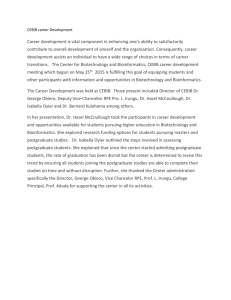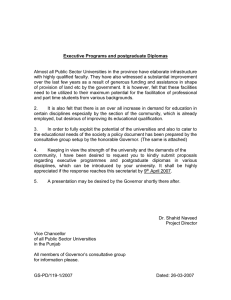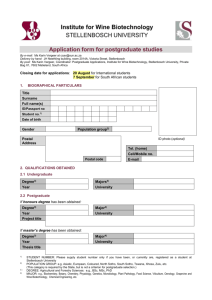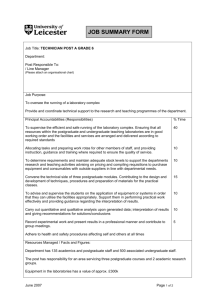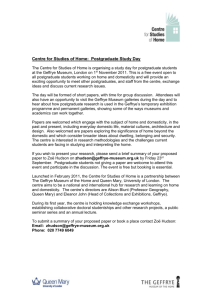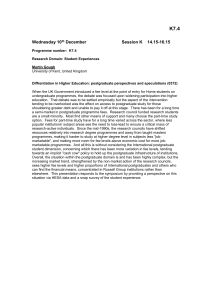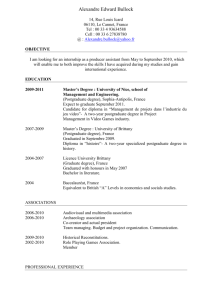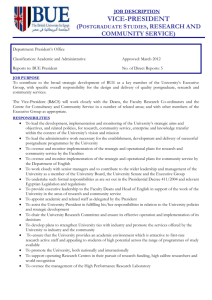Summary - Science sector that`s alive and kicking
advertisement
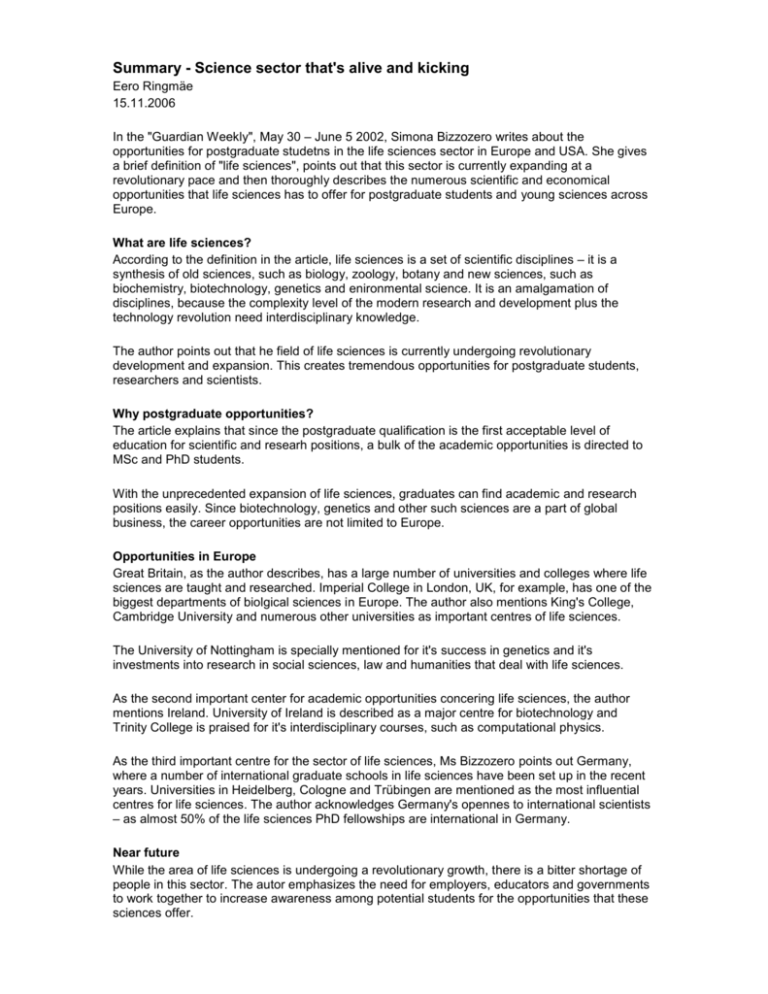
Summary - Science sector that's alive and kicking Eero Ringmäe 15.11.2006 In the "Guardian Weekly", May 30 – June 5 2002, Simona Bizzozero writes about the opportunities for postgraduate studetns in the life sciences sector in Europe and USA. She gives a brief definition of "life sciences", points out that this sector is currently expanding at a revolutionary pace and then thoroughly describes the numerous scientific and economical opportunities that life sciences has to offer for postgraduate students and young sciences across Europe. What are life sciences? According to the definition in the article, life sciences is a set of scientific disciplines – it is a synthesis of old sciences, such as biology, zoology, botany and new sciences, such as biochemistry, biotechnology, genetics and enironmental science. It is an amalgamation of disciplines, because the complexity level of the modern research and development plus the technology revolution need interdisciplinary knowledge. The author points out that he field of life sciences is currently undergoing revolutionary development and expansion. This creates tremendous opportunities for postgraduate students, researchers and scientists. Why postgraduate opportunities? The article explains that since the postgraduate qualification is the first acceptable level of education for scientific and researh positions, a bulk of the academic opportunities is directed to MSc and PhD students. With the unprecedented expansion of life sciences, graduates can find academic and research positions easily. Since biotechnology, genetics and other such sciences are a part of global business, the career opportunities are not limited to Europe. Opportunities in Europe Great Britain, as the author describes, has a large number of universities and colleges where life sciences are taught and researched. Imperial College in London, UK, for example, has one of the biggest departments of biolgical sciences in Europe. The author also mentions King's College, Cambridge University and numerous other universities as important centres of life sciences. The University of Nottingham is specially mentioned for it's success in genetics and it's investments into research in social sciences, law and humanities that deal with life sciences. As the second important center for academic opportunities concering life sciences, the author mentions Ireland. University of Ireland is described as a major centre for biotechnology and Trinity College is praised for it's interdisciplinary courses, such as computational physics. As the third important centre for the sector of life sciences, Ms Bizzozero points out Germany, where a number of international graduate schools in life sciences have been set up in the recent years. Universities in Heidelberg, Cologne and Trübingen are mentioned as the most influential centres for life sciences. The author acknowledges Germany's opennes to international scientists – as almost 50% of the life sciences PhD fellowships are international in Germany. Near future While the area of life sciences is undergoing a revolutionary growth, there is a bitter shortage of people in this sector. The autor emphasizes the need for employers, educators and governments to work together to increase awareness among potential students for the opportunities that these sciences offer.
